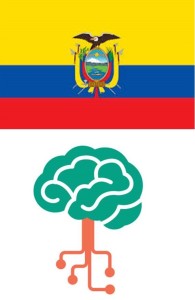
ECUADOR INITIATIVE: Transition Proposals Toward a Commons-Oriented Economy and Society
Sponsored by the National Institute of Advanced Studies of Ecuador, carried out by the Free/Libre Open Knowledge (FLOK) Society.
From Jose Luis Vivero Pol
BIOMOT Policy Brief 1 – Limitations to Economic Environmental Valuation
1. EEV methods fail to secure ecosystem systainability.
2. EEV methods mistakenly assume that money can be used as a neutral measuring rod of people's preferences.
3. EEV methods are grounds in a misguided approach to decision making.
4. EEV methods misunderstand, and motivate policies which fail to respect, the way in which people value nature.
5. EEV methods may compromise intrincis motivations for environmental protection.
6. EEV methods facilitate the troubling expansion of market norms into environmental valuation and decision making.
Phi Beta Iota: Without a holistic analytic model and true cost economics (and now adding socio-cultural valuations not represented by industrial era approaches to thinking) it is not possible to achieve resilient sustainability at scale.
See Especially:
Michel Bauwens: Integrated Societal Metabolism
See Also:
Michel Bauwens @ Phi Beta Iota
Review: Biocapital–The Constitution of Postgenomic Life
Review: Consilience–the Unity of Knowledge
Review: Earth–The Sequel–The Race to Reinvent Energy and Stop Global Warming
Review: Ecological Economics – Principles and Applications (Second Edition)
Review: Holistic Darwinism: Synergy, Cybernetics, and the Bioeconomics of Evolution
Review: Integral Consciousness and the Future of Evolution
Review: Philosophy and the Social Problem–The Annotated Edition
Review: Plows, Plagues, and Petroleum–How Humans Took Control of Climate (Hardcover)
Review: The Ecology of Commerce–A Declaration of Sustainability
Review: The Health of Nations–Society and Law beyond the State
Review: What Has Nature Ever Done for Us?
See Also:
Ecuador Initiative @ Phi Beta Iota
Michel Bauwens @ Phi Beta Iota



